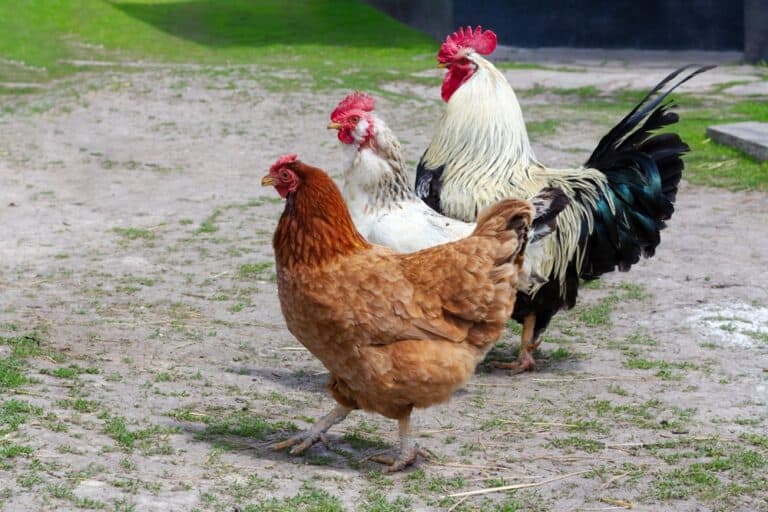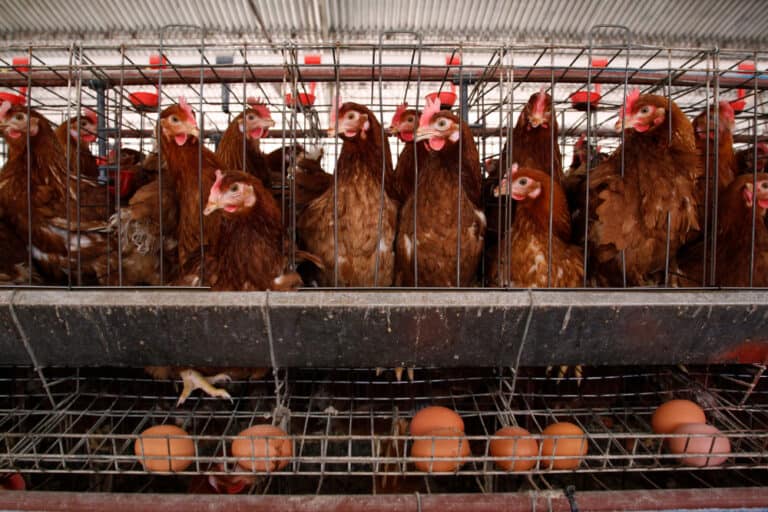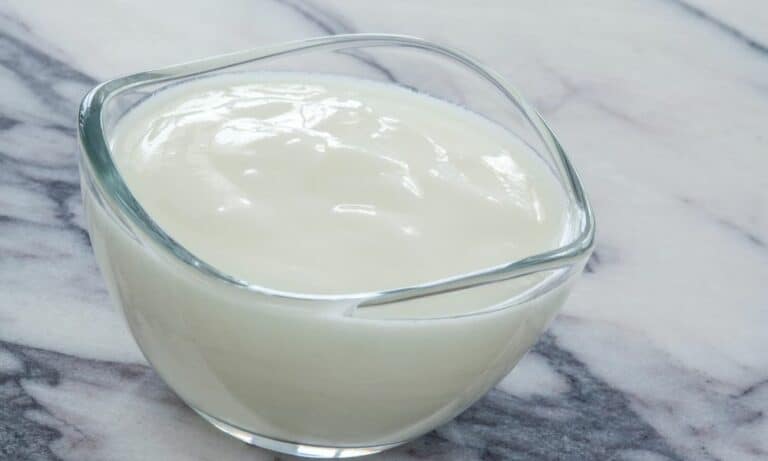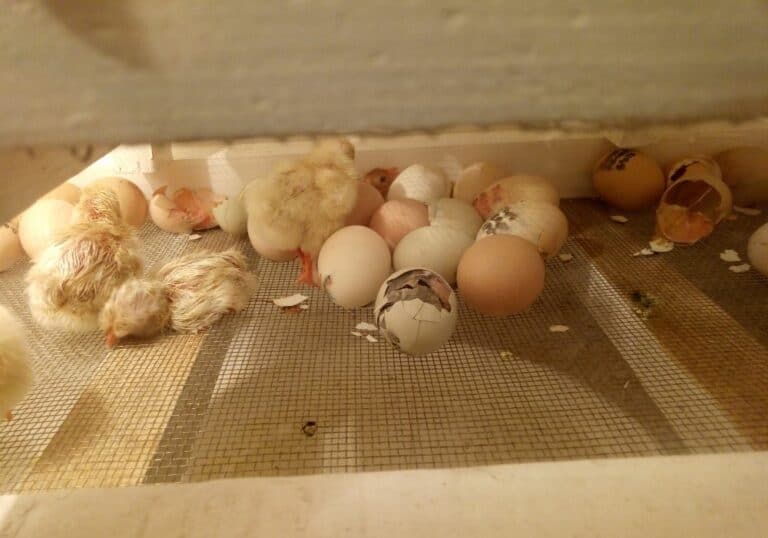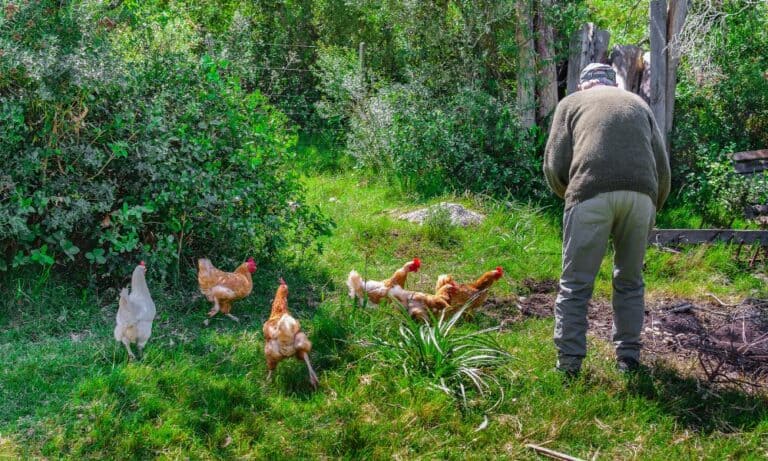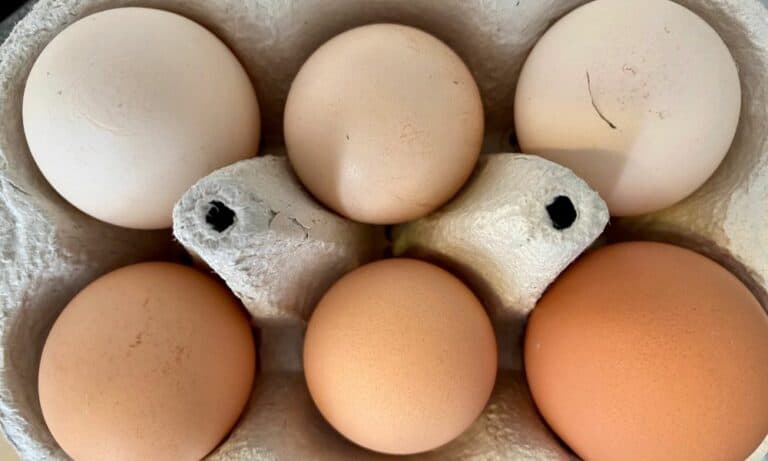It doesn’t matter what animal you keep, you’re always terrified of giving them the wrong thing! You’ll likely have many questions about your flock, including whether can chickens eat grapes? Thankfully we’re here to answer all your questions.
As well as looking at whether or not chickens can eat grapes, we’ll also check out what other common foods they can, and can’t, eat. By the end, you’ll know exactly what you can feed your chickens. Read on to find out more!
Can Chickens Eat Grapes?
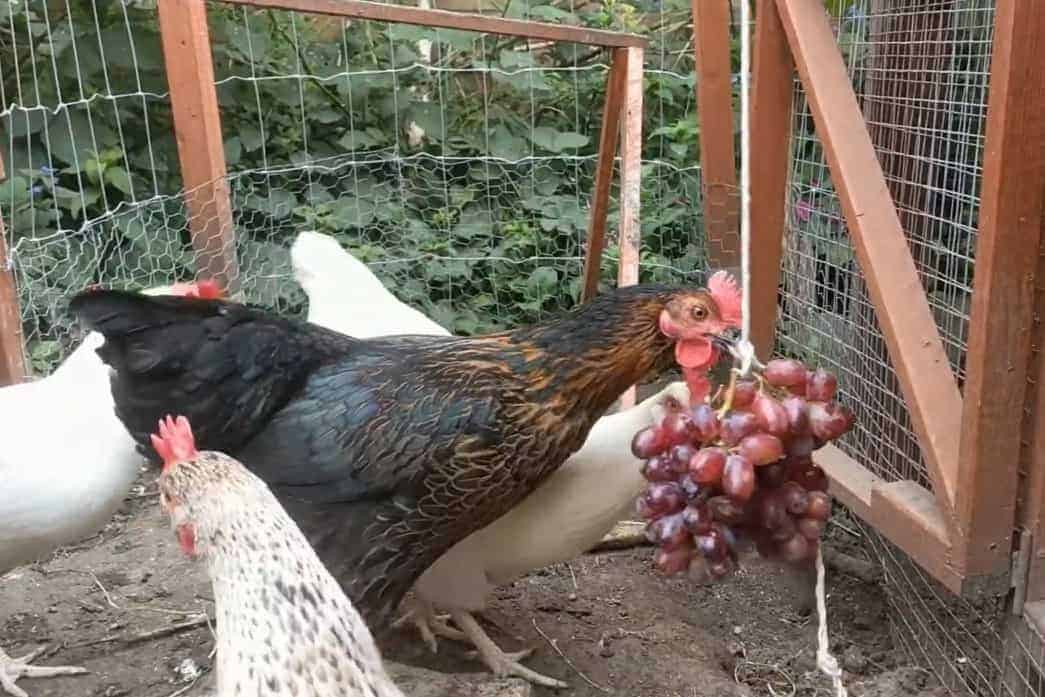
Yes, chickens can eat grapes and they won’t get ill from doing so. You can happily throw a few grapes to your chickens and they’ll quickly gobble them up.
Not just a nice treat, there is also plenty of nutritional value in grapes. They are a rich source of Vitamin B while also containing good amounts of Vitamins A and C. Along with this are small amounts of important minerals, such as calcium and copper.
Are there any concerns? Only minor ones. Grapes are high in natural sugars so giving too much of them to your chickens will result in an imbalanced diet. However, a few won’t do them any harm. Next, let’s tackle some common questions people have about grapes and chickens!
1. How Many Grapes Should I Give My Chickens?
Not many. You’re probably best only giving them a small handful of grapes each. It’s worth noting that the chickens will most likely compete for the grapes and you want to ensure that anyone chicken isn’t getting more than their fair share.
2. Can Chickens Eat Grape Seeds?
Yes, chickens can eat grape seeds without any issues. While some warn against potential choking issues, the seeds are far too small to worry about with grown hens. They’ll easily swallow them and enjoy the nutrients. However, it’s best to avoid giving seeded grapes to chicks.
3. Can Chickens Eat Grape Vines and Leaves?
Again, there are no problems with chickens eating the vines/stems or grape leaves. If you have grapes on a stem, then you can just throw them into their coop and not worry about them. You don’t need to worry about picking off the individual grapes.

4. Can Chickens Eat Moldy Grapes?
There is a line of thinking that you can give food to animals that have gone moldy, but it’s almost always not true. The basic rule with chickens is that if you don’t want to eat it yourself, then you shouldn’t give it to your chickens. As with humans, chickens can get ill from the bacteria on moldy food.
5. Should I Cut Up the Grapes?
You can for peace of mind, but it’s not required. While chickens don’t have any teeth, they are able to break grapes up and they are a very minimal choking risk. But it’s a good idea to make your own judgment based on the size of your grapes and the size of your chickens.
For example, if you have large grapes and bantam chickens, then it’s going to be the best idea to cut them up. However, for most fully grown hens, it’s not something to worry about.
6. Should I Worry If My Chicken Ate Grapes?
There are generally three concerns when it comes to grapes and chickens. First, is what we’d just talked about, choking. This is rarely an issue but it’s a good idea to keep an eye on your chickens to ensure they are digesting them properly.
Another concern is the sugar content which is why you wouldn’t want your chickens eating a bunch of them every day. Finally is to check that no chemicals have been used on them. It’s always best to ensure grapes have been washed before giving them to your chickens.
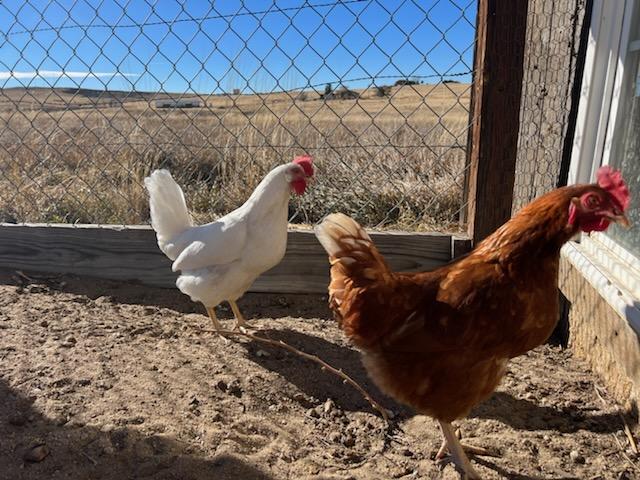
7. Can I Mix Grapes with Their Feed?
No. The reason for that is the high water content in grapes. Unless the entire feed is eaten in one go, the grapes will make the rest of the feed moist. This can quickly lead to mold and bacteria growth, so it’s best to ensure they are separate from the main feed.
8. Can Baby Chicks Eat Grapes?
They can, but you shouldn’t. A chick’s diet needs to be more closely controlled than that of an adult chicken. You want to have a well-balanced feed and it’s hard to incorporate grapes as a part of that.
There is another reason too, as the grapes are much more of a choking hazard to small chicks. You can chop the grapes into smaller pieces but it’s better to just avoid it altogether.
9. What About Raisins?
Chickens can have raisins, but we wouldn’t recommend it. As mentioned, grapes have a lot of sugar and in grapes, that’s even more concentrated. Excess sugar can lead to kidney problems so their raisin intake would need to be closely controlled. A few raisins would be fine, but we just don’t think it’s worth the risk.
What Is in Chicken Feed?

What does chicken feed contain and how do grapes complement it? In terms of what they need for their diet, chickens, and humans aren’t too different. We both need a balanced diet that includes a healthy amount of each food group. This includes:
- Protein – Chickens need protein for both energy and growth. High protein is especially important in fast-growing breeds when they’re young.
- Vitamins and Minerals – These are vital for a wide number of reasons to ensure their bodies are fully functioning.
- Enzymes – Enzymes are an important addition to the digestion and absorption of vitamins and minerals.
- Fats – A small amount of fat is always healthy as this is also vital for absorption.
- Carbohydrates – Carbs get a bad reputation, but they are vital for giving animals energy.
Where do grapes fit in with this? Well, they give chickens protein, vitamins, fats, and carbohydrates! The protein and fat content is minimal but it contains plenty of fiber, which is a plant-based carbohydrate
Grapes also contain a wide range of vitamins and minerals. These include vitamins K, B1, B2, B6, C, and E along with the minerals of manganese, potassium, and copper. However, in 100 grams of grapes, there will be around 16 grams of sugar.
The majority of chicken pellets are made up of crushed grain, which usually includes corn, wheat, and oats. This gives plenty of carbohydrates, protein, vitamins, and minerals. Added to this is usually the likes of split peas which give a lot of protein and fish meal for extra minerals, vitamins, and fat.
When To Give Chickens Treats
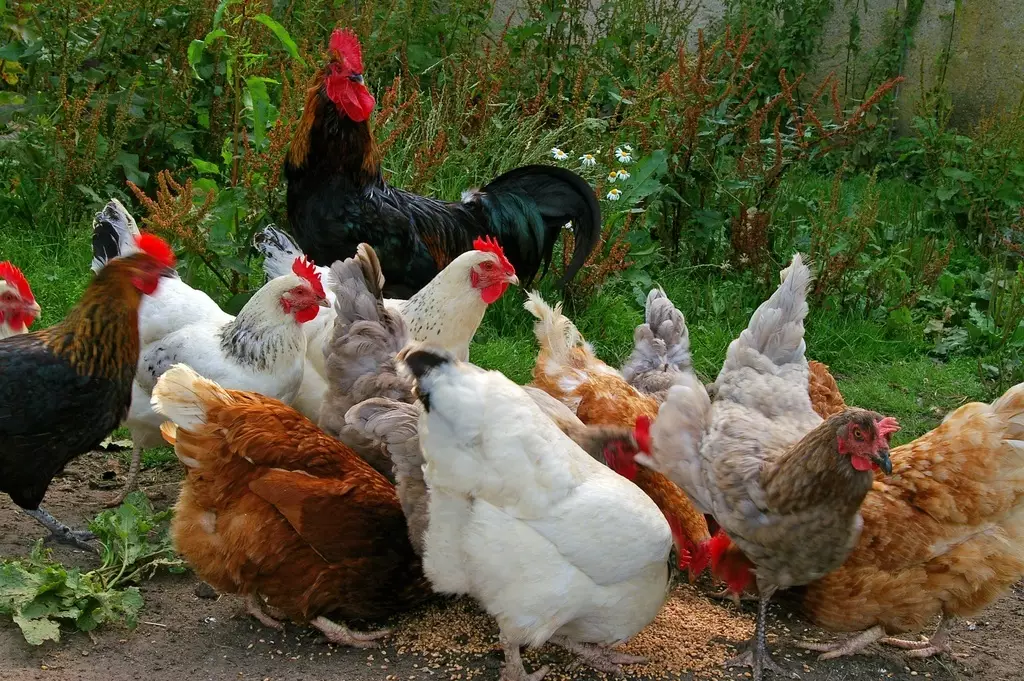
Grapes should be seen as a treat for chickens but how often should they be given treats and how many treats should they be given? The answer will depend on one chicken to the next and how you give them their regular feed.
The usual rule is that treats should only ever make up 10% of their diet. Medium-sized chickens will eat around 100 grams of food per day, which approximately equates to 1.5 lbs per week.
With these numbers in mind, you should only feed your chickens around 10 grams of grapes per day. While that doesn’t equate to a lot of grapes, you shouldn’t worry too much about it. Just make sure you’re not giving them a big pile of grapes every day.
It’s also worth noting that chickens will need to eat more in the winter, so you can give them a few more treats in the colder months. It’s best not to give treats to chicks as they need a more closely controlled high-protein diet.
You can give your chickens treats at any time of day, but it’s usually advised to save their treat until nighttime. The reason is that there is a danger in the daytime that they’ll get full up on grapes and not eat their regular chicken feed.
But don’t worry too much. Chickens are just like us in many ways. You can see grapes as their fast food. While having it three times a day every day is a terrible idea, having fast food every now and again isn’t going to cause any problems.
Overeating won’t be an issue either. Hens aren’t gluttonous and won’t eat food for the sake of it. It’s why many keepers will hang feeders all day and allow their chickens to eat as and when they want.
What Can Chickens Eat?
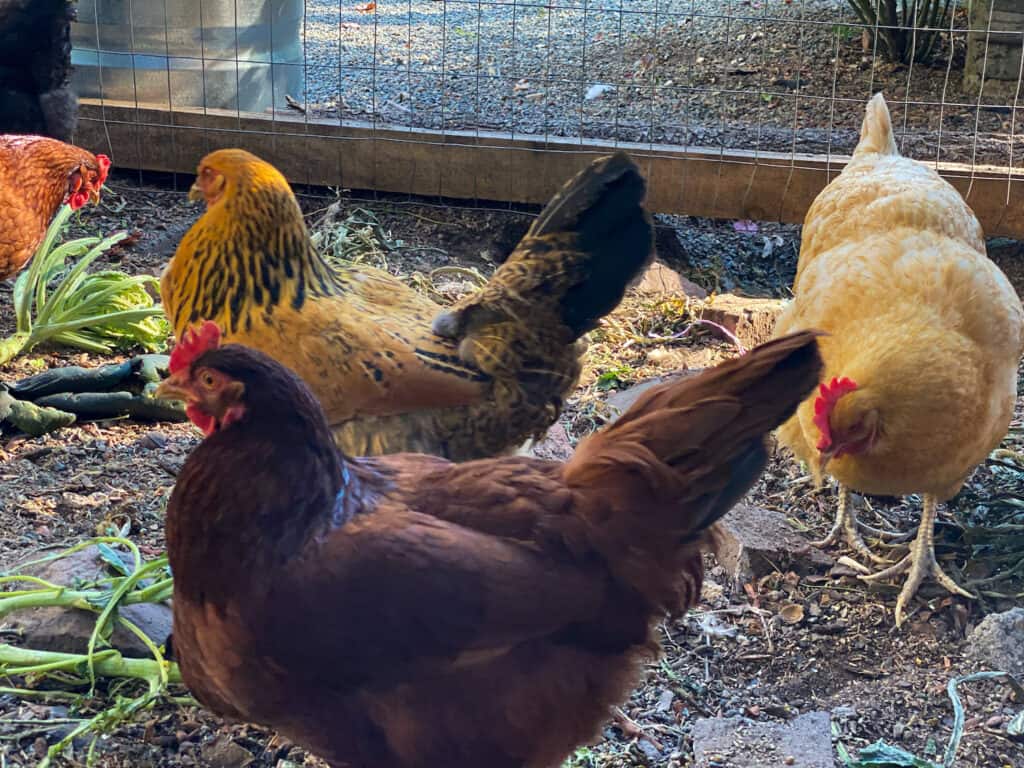
Chickens can eat almost all fruit and vegetables, with some important exceptions. While the likes of broccoli and bananas are obvious snacks, we wanted to highlight some great treats they can have, which are a little less obvious. Later on, we’ll also look at what foods they should avoid.
- Grass – This is fine but eating long strands can lead to impaction.
- Rice/Pasta – There is no problem here but rice and pasta don’t have much nutrition and when uncooked, can expand in their gut.
- Bread – Bread is similar to rice. It won’t cause them any issues, but it has very low nutritional value.
- Popcorn – A surprisingly great snack that contains a lot of vitamins! Just make sure it’s not salted or flavored.
- Pumpkin – Not sure what to do with your pumpkins after Halloween? Your chickens will love them! That includes the seeds.
- Meat – Chickens will happily eat meat (red, white, and fish), including chicken! A great source of protein but it’s best to cut off any fatty bits.
- Cheese/Yogurt – This would only be given in small quantities but can be a good way to provide them with protein and calcium.
- Flowers – We could write a whole article on this, as it depends. The best thing to do is look at what flowers are in your backyard and see if they are okay for chickens. Some flowers they love to eat are violets, roses, dandelions, marigolds, and sunflower seeds.
- Eggs – They’ll happily eat cooked eggs but don’t give them boiled eggs, as they may get a little confused!
- Mealworms – This is a classic perfect chicken snack as it contains plenty of protein.
- Cereal – A good source of vitamins and minerals but some cereal contains a lot of sugar, so it’s best to double-check.
- Cat and Dog Food – Chickens can eat this but make as an obvious point, it’s not meant for them. It should only ever be given as a treat and not as their regular feed.
What Can’t Chickens Eat?
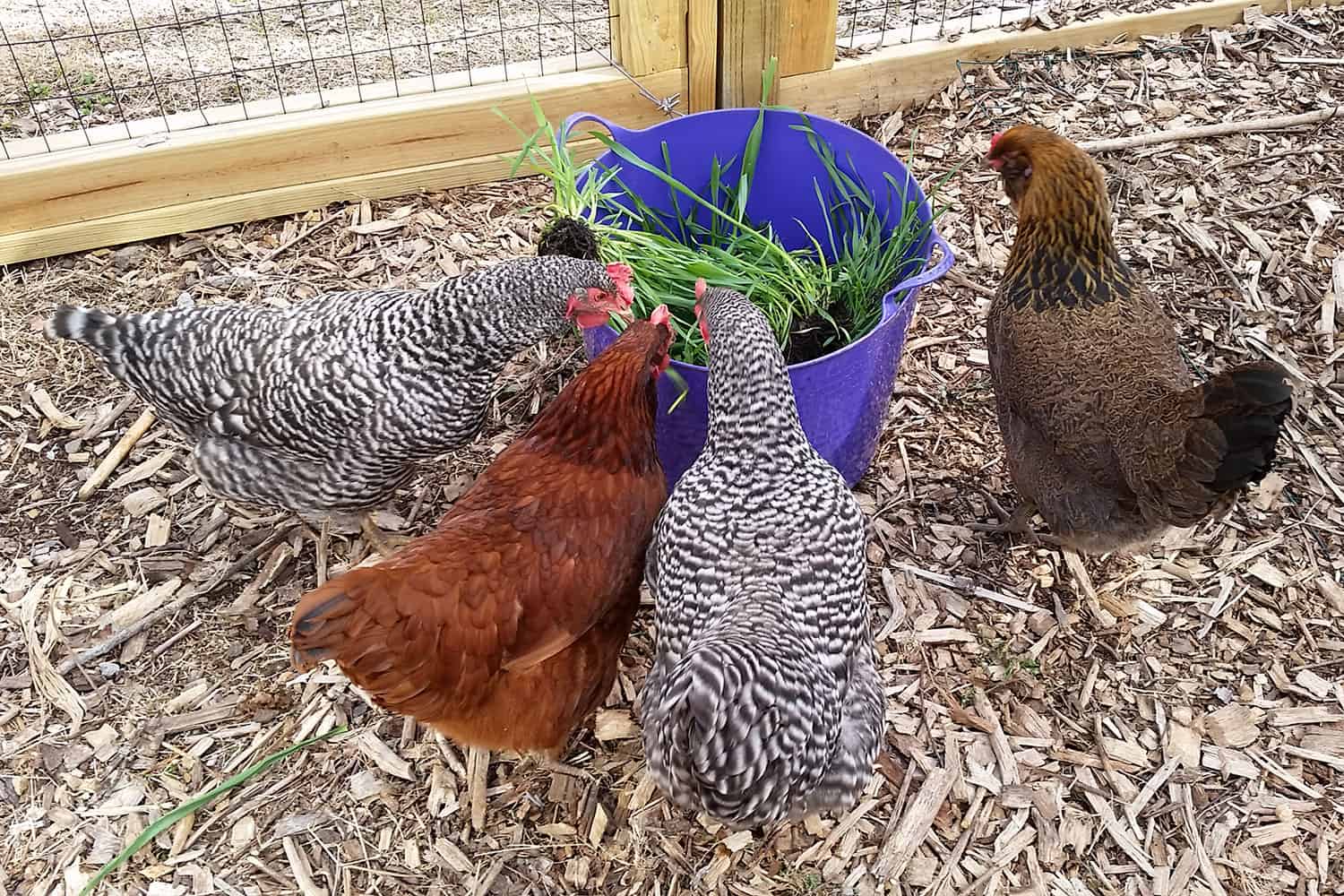
As we said above, chickens can usually eat most fruit and vegetables, but there are a few important exceptions. Along with looking at fruit and veg, we’ll also check out what other food they should be avoiding.
- Chocolate – As with dogs, chocolate is a huge no for chickens. Not only does it contain theobromine which is toxic to them, but they also shouldn’t consume caffeine either. Too much can cause their heart to stop. Generally the darker the chocolate, the worse it is.
- Sugar – Yes, grapes contain sugar, but everything should be eaten in moderation. The sugar in grapes is also natural, as opposed to refined, so make sure not to give them any sweets or they’ll start to develop health problems.
- Salt – This is another complicated one, as chickens actually need salt. However, they only need a very small amount and sodium is naturally found in many foods such as meat and vegetables. Too much salt can cause a range of issues, such as birth defects.
- Processed Food – Any type of processed food should be avoided. Not only is it low in nutritional value but it usually contains a whole host of additives that may be harmful. Added to that, processed foods are often very high in salt and/or sugar.
- Avocado – The flesh of an avocado is perfectly okay. But the leaves, skin, and stone all contain persin, which is highly toxic. Due to this, it’s best to avoid any risk and not give them any avocados.
- Nightshade Leaves – Never heard of Nightshade? Well, it’s a broad term for a wide range of flowering plants. As a rule, nightshade leaves are toxic to chickens. Nightshade plants include eggplant, tomato, potato, and pepper, among a few others.
If you have food growing in your backyard, double-check where their leaves come from before giving them to your chickens.
- Peanuts – These are on the list of technically okay but probably shouldn’t. Most peanuts are either salted or covered in some sort of flavoring. Unless you have completely natural peanuts, don’t feed them to chickens. Other types of nuts are fine to give them in moderation.
- Moldy Bread – Nope! As we said above, unless you’re happy to eat it yourself, don’t give it to your chickens. Throw it out, or better, stick it in a compost bin.
- Rhubarb – Rhubarb is another definite no as it contains oxalic acid, which can damage a chicken’s liver. This rule applies to all parts of the rhubarb.
- Coffee/Tea – Many think it’s a good idea to give used coffee grounds or tea to a chicken but it’s definitely not. As with chocolate, coffee grounds can contain caffeine and the problem with tea is that It contains tannins. These are beneficial in small quantities but can inhibit chicken growth.
- Pickles – Cucumbers? Yes. Pickles? No. The reason is that pickles are a processed form of cucumbers which therefore contain a lot of salt and sugar.
Final Thoughts
If you’ve given grapes to your chickens or are thinking about it, then they’ll love them! While there is no issue with giving grapes to your chickens, they need to be eaten in moderation due to their high sugar content and shouldn’t be seen as a replacement to their usual feed.

